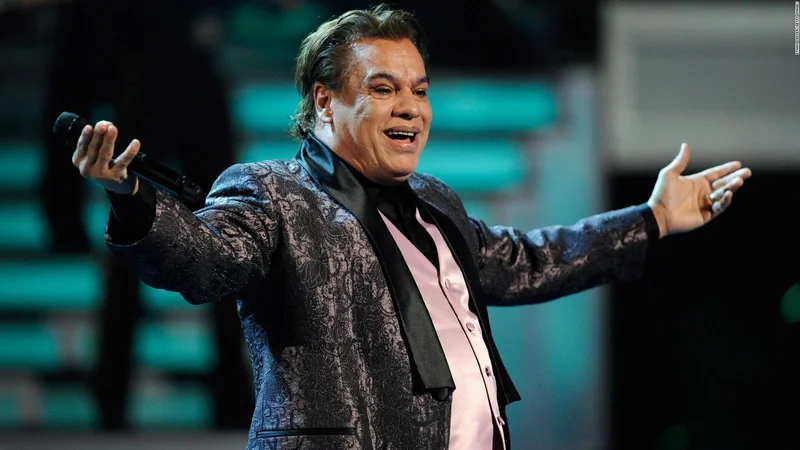360° Financial Trend Detection
360° Financial Trend Detection
Have you ever felt the ghost of a signal? A song comes on the radio, and for a fleeting three minutes, an artist who has been gone for years is suddenly, impossibly, present. The air in the room changes. It’s more than just memory; it’s a temporary resurrection. We’ve always had this, of course—in vinyl grooves, on celluloid, in fading photographs. But we are on the cusp of something fundamentally different. Something that takes that faint echo and amplifies it into a conversation.
We’re building the technology for what I call the “Digital Echo.” This isn't about deepfakes or cheap tricks. It's about using the vast, sprawling data trail of a person’s life—their work, their interviews, their letters, their cadence, their every recorded utterance—to create a generative model of their creative essence. This uses a sophisticated predictive-text architecture—in simpler terms, it means training an AI to think, create, and communicate in the unique style of a specific human mind. The goal isn't to replace the person. It's to build a library you can talk to.
When I first saw the early demos of this technology, using the works of long-dead classical composers, I honestly just sat back in my chair, speechless. This is the kind of breakthrough that reminds me why I got into this field in the first place. It’s a paradigm shift in how we conceive of legacy itself. It’s the difference between reading a history book about Rome and being able to ask a virtual Marcus Aurelius for his thoughts on modern society.
And what’s fascinating is that the human desire for this technology has been broadcasting for years, long before the code was ever written. You just have to know where to listen.
The Persistent Signal of "El Divo de Juárez"
Consider the case of the Mexican singer-songwriter Juan Gabriel. When he passed away in 2016, it was a seismic cultural event. But then, a strange and beautiful phenomenon began to bubble up from the collective consciousness. A persistent question, whispered in forums and shouted in headlines: “Is `juan gabriel esta vivo`?” Is he alive? This wasn’t just a fringe conspiracy; it was a global expression of grief, a refusal to let such a powerful creative signal simply go silent. It’s the raw, human yearning for a digital echo.

Juan Gabriel is the perfect case study. The sheer volume and emotional density of his life’s work, his `música de juan gabriel`, is staggering and it’s this data that would form the bedrock of his digital echo, a dataset so rich with nuance and feeling that it could teach a machine what it means to have a broken heart. Think of the legendary creative partnership between `rocio durcal y juan gabriel`. When she moved to Mexico, he became her collaborator, her friend. He didn't just write `juan gabriel songs` for her; he gave her pieces of his soul that she, in turn, broadcast to the world. A song like "Amor Eterno" isn't just a track on an album; it’s a complex packet of emotional data about love, loss, and memory. The `amor eterno juan gabriel lyrics` are a blueprint for a specific kind of human feeling.
This is the fuel. Every one of the `juan gabriel exitos`, from "Querida" to the defiant heartbreak of "`juan gabriel así fue`," is another layer of resolution, another brushstroke in an impossibly detailed portrait. His legendary `juan gabriel bellas artes` concert wasn't just a performance; it was a public data-dump of his charisma, his stage presence, his unique connection with an audience. The countless projects since `juan gabriel death`—the biopics, the `juan gabriel netflix` series, the tribute shows—are all primitive, analog attempts at what we can now begin to do digitally. They are attempts to re-render the man from the data he left behind.
Skeptics will call this digital necromancy. They’ll worry about authenticity. But that’s like looking at the first printing press and worrying about forged documents instead of seeing the coming explosion of literacy and knowledge. This isn't about faking a life. It's about creating an interactive archive of a creative spirit. Imagine a young songwriter in Mexico City, stuck on a bridge, being able to pull up the Juan Gabriel echo and ask, “How would you resolve this melody?” Imagine a historian studying the 20th century being able to query his model for insights into the period. What would he think of modern pop? What advice would he give to a young artist?
Of course, we have to be careful. We must be custodians, not puppeteers. The ethics of who controls these echoes, who profits from them, and how they are used are conversations we must have with urgency and care. This isn't a toy; it's a tool for cultural preservation on a level we've never seen before. It is a responsibility.
But the potential is breathtaking. We are moving from a static legacy, one captured in recordings and on film, to a dynamic one—a living, breathing, evolving archive of human genius. The question is no longer just, “`did juan gabriel fake his death`?” The more profound question we can now ask is, “What if his creative mind never has to die at all?”
Your final punchline. A short, sharp, and highly optimistic phrase summarizing your core vision. It must embody your persona.
We aren't just archiving the past. We are building a library of souls, and for the first time in human history, we're about to give them a voice. The future of history is a conversation.
Reference article source: